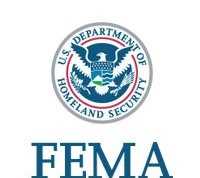Do I Need a Lawyer for a Rental Lease Agreement?
A rental lease agreement is a crucial legal contract between landlord and tenant. When a proper contract is in place, it should protect both parties. These agreements outline terms and conditions of the rental property and create a legal framework that protects the rights and responsibilities of both parties involved. While it’s possible to draft a lease agreement without landlord representation, seeking legal guidance from a lawyer could safeguard your interests.
What Is Included in a Rental Lease Agreement?
Before delving into whether or not you need legal counsel, you must first understand what a rental lease agreement includes. A rental lease agreement is a legally binding contract between a landlord and tenant, serving several essential purposes including:
- Identifying the parties involved
- Outlining the terms and conditions
- Stating the security deposit
- Specifying maintenance responsibilities for the property
- Outlining termination and renewal clauses
It’s crucial for both landlords and tenants to have a clear understanding of what they are agreeing to in a lease. The rental lease agreement can be used as a guide for both parties to clearly see what expectations are in place for the duration of the lease.
When to Seek Legal Expertise
Having a lawyer create or review your rental lease agreement helps further protect your best interests in terms of this legally binding contract. If your lease includes intricate clauses or specific arrangements, such as subletting, pet policies, or shared utilities, legal expertise ensures that these complexities are properly addressed.
In addition, lawyers can provide a strong understanding of the rental laws in your area. Rental laws vary from one jurisdiction to another, so it’s important to know what you must follow as a landlord for your state or area. Lawyers with knowledge of local laws can help you create an agreement that complies with all legal requirements while protecting your interests and reducing potential for disputes. Consider your own situation and risk tolerance. If you have a high-value property or are dealing with tenants in unique circumstances, it may be wise to consult with a lawyer to minimize potential risks.
Complying with Local Law
One of the most compelling reasons to involve a lawyer in your rental lease agreement is to ensure compliance with local laws and regulations. Rental laws can be highly specific and can vary not only from state to state but also between cities and towns. Failing to adhere to these laws could result in serious legal consequences, including eviction delays, fines, and damage claims.
A lawyer with knowledge of local landlord rights can help you navigate this complex legal landscape. They can ensure that your lease agreement aligns with all relevant statutes, helping you avoid costly legal pitfalls.
Negotiating Terms of a Rental Lease Agreement
Negotiation is key in a rental lease agreement. While standard lease templates are readily available, they may not fully address your specific needs or concerns. A lawyer can advocate on your behalf during negotiations to help shift the needle in your favor. Lawyers can ensure that your interests are represented while ensuring that terms are fair and reasonable for all parties involved.
If your lease requires special clauses or agreements, such as those related to property improvements, maintenance responsibilities, or dispute resolution mechanisms, a lawyer can help draft and negotiate these terms effectively. Well-negotiated lease agreements are less likely to lead to disputes between a landlord and tenant, or vice versa. Lawyers create clear, unambiguous terms that leave little room for interpretation, which reduces the likelihood of conflicts.
Legal Protection of Your Property
A rental lease agreement not only outlines the rights and responsibilities of tenants but also serves as legal protection for your property as a landlord. Leases protect your property through certain components including:
- Property Inspection: Involving property inspection in your lease can be vital in resolving disputes related to property damage and security deposit deductions.
- Eviction Process: If an eviction becomes necessary, a lawyer can guide you through the legal eviction process, ensuring that you follow all relevant laws and regulations.
- Dispute Resolution: In the event of a dispute, a lawyer who is familiar with your lease agreement can help mediate while protecting your property and interests.
While some rental lease agreements may not require the involvement of a lawyer, it’s essential to carefully consider your specific circumstances, the complexity of the lease, and local rental laws. Legal expertise can help ensure that your lease agreement is comprehensive, legally compliant, and offers the necessary protection for your property and interests, ultimately providing peace of mind for both landlords and tenants.












